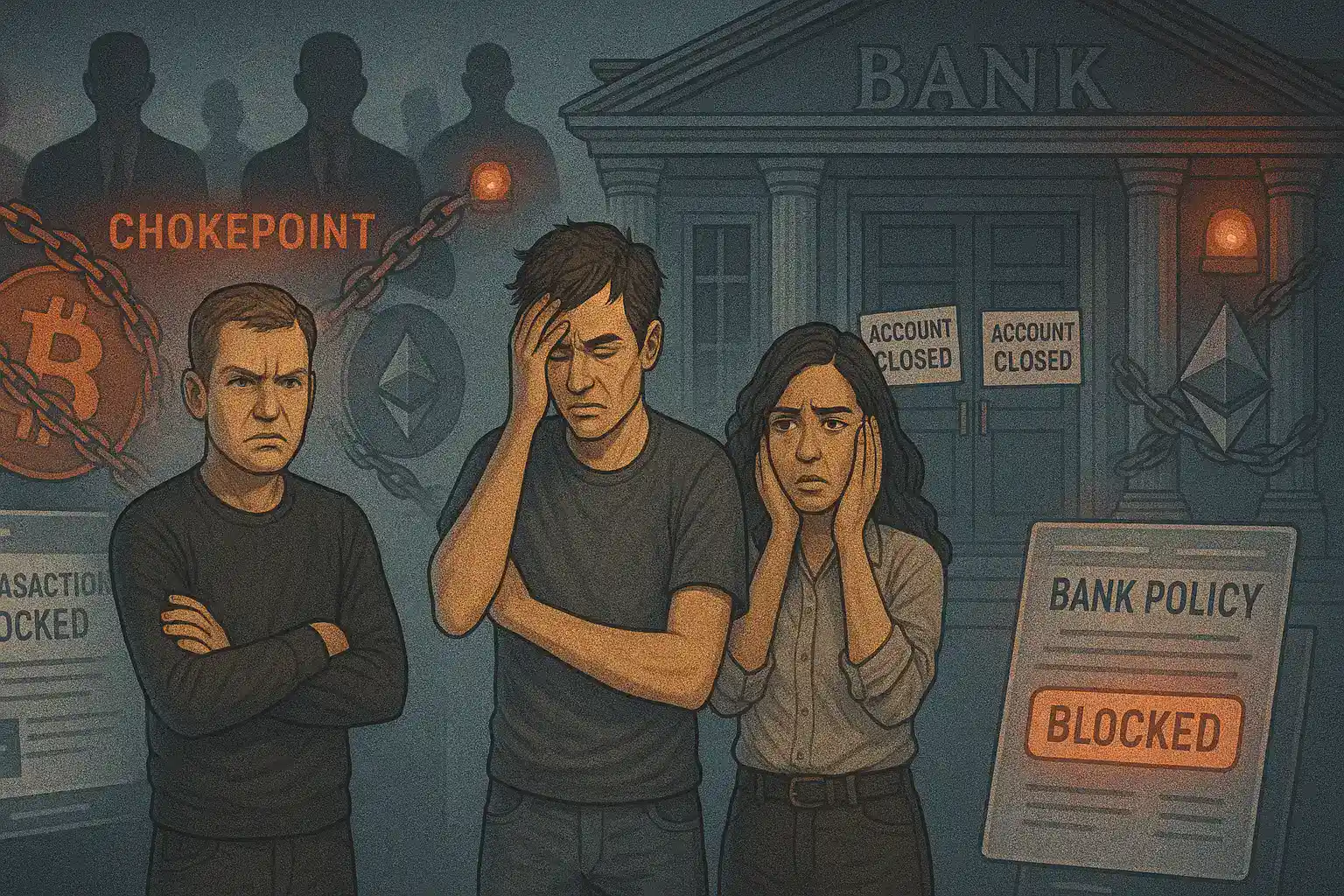The War on Crypto Banking Isn’t Over—It’s Evolving
For many years now, across the United States, crypto companies have been rocked by “de-risking.” This is a process where banks switch off accounts or refuse proceeds to digital asset businesses. Many believe this is no accident but part of a coordinated effort often called Operation Chokepoint 2.0.
The crypto industry felt a surge of optimism when Trump’s administration came to power. His campaign speeches and early policy actions raised hopes for a better regulatory environment for cryptocurrencies. Most believed debanking would end.
They were wrong.
Last week, Alex Rampell, general partner at Andreessen Horowitz, raised the alarm over what he describes as “Operation Chokepoint 3.0.” Major banks, he claimed, are squeezing fintech and crypto apps — not by banning them outright, but by raising fees for access to accounts and for transfers to platforms like Coinbase, Robinhood, and others, making them more expensive and less competitive.
Crypto Firms Still Being Shut Out
Alex Konanykhin, CEO of Unicoin, stated the debanking wave is “far from over.” Speaking to Cointelegraph, he said several banks, including Citibank, Chase, Wells Fargo, City National Bank of Florida, and TD Bank have cut off Unicoin and its affiliates without reason.
“We have been de-banked by four institutions just this year.”
Unicoin is a public reporting company audited for six years, with over 4,000 shareholders, seeking basic financial services. This upheaval will badly impact not just FTX but the entire U.S. crypto space.
Trump Prepares to Strike Back
As reported by Bloomberg, President Trump is working on an executive order that would punish banks participating in debanking. It will instruct federal regulators to investigate and sanction banks that unlawfully cut off services. Additionally, banks regulated by the Small Business Administration may be required to reinstate customers terminated in the last quarter.
Konanykhin views this as a turning point.
President Biden is aware of the suffering caused by de-banking and is determined to end this form of economic warfare. Ending the war on crypto could help the U.S. regain its leadership role in global finance.
He envisions a future where U.S. cryptocurrency innovation rivals Hollywood in entertainment power and Silicon Valley in tech supremacy.
The Fine Print Will Decide the Future
Not everyone is ready to celebrate. Elizabeth Blickley, partner at Fox Rothschild’s Tax Controversy & Litigation Practice, says the real impact will depend on the fine details of forthcoming legislation and regulations.
According to her, the recently passed Genius Act gives the Federal Reserve Stablecoin Certification Review Committee 180 days to create a regulatory framework for stablecoins. This will influence how deeply crypto integrates into the U.S. financial system.
Bottom line: The battle over crypto’s role in America’s banking infrastructure is far from over — it’s entering its most decisive phase. It remains uncertain whether Trump’s intervention against debanking will deliver the knockout blow the industry hopes for.



























